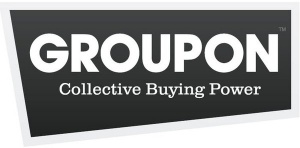Recession? What recession!? Money saving websites are increasing retail footfall!

According to the Economics textbooks, a recession is a business cycle contraction - a general slowdown in economic activity. During recessions, employment, investment spending, capacity utilization, household incomes, business profits, and inflation all fall, while bankruptcies and the unemployment rate rise. Basically, a pretty sorry state of affairs, with the knock-on effect being the average person is being forced to stay in to save money. That said it still doesn’t stop you looking for the great deals London can offer and bargains in any other city around the UK. This is really how the discount voucher phenomenon started.
In the UK, many cities have experienced a major dip in social trends with weekend activities very much centring around budgets and costs. Nightclubs are suffering with many clubbers picking and choosing their destinations and night with a lot more care, as perhaps in leaner times, deciding to party on both Friday and Saturday without having to factor admissions and transport costs.
It is true that the budget supermarkets are now seeing sales soar as recession leads people to cook and eat at home, but it is also true that the many money saving websites that advertise deals as a digital coupon service are seeing a boom. With people looking to do different things on a budget, these websites are a ‘Godsend’, especially for groups. We recently went away to Glasgow and searched for Glasgow deals on a number of discount voucher websites. We were pleasantly surprised to find not only individual savings but huge group savings that go beyond any group offer I have seen before.
Groupon (or “group coupon”) is a ‘deal-of-the-day’ website that features discounted gift coupons redeemable at local or national companies. Launched in November 2008, in the US, the company has rapidly grown and now serves more than 150 markets in North America and 100 markets in Europe, Asia and South America and has amassed 35 million registered users. According to one source, Groupon had nearly 3 million unique visitors in March 2011, up from 900,000 in September 2010.
If a certain number of people sign up for the offer, then the deal becomes available to all- if the predetermined minimum is not met, no one gets the deal that day. This reduces the retailer’s risk, who can treat the coupons as quantity discounts and sales promotion tools. Groupon makes money by keeping approximately half the money the customer pays for the coupon. So, for example, you could search for Edinburgh deals and find a £60 restaurant meal that is reduced to £30. Groupon and the retailer split the £30- i.e., the retailer gives a meal valued at £60 and gets approximately £15 from Groupon for it. And the consumer gets the dining experience, in this example, from the restaurant for which they have paid £30 to Groupon.
So it seems that the recession may well have a few ‘silver-linings’, indeed to companies with the savvy to capitalise on consumer demand and need. It doesn’t matter whether you are looking for cheaper food or a day out paint balling people there is a wide variety of deals that cater for everyone. And with mobile voucher redemption on the increase thanks to Smartphones the buyers landscape has definitely changed forever.

